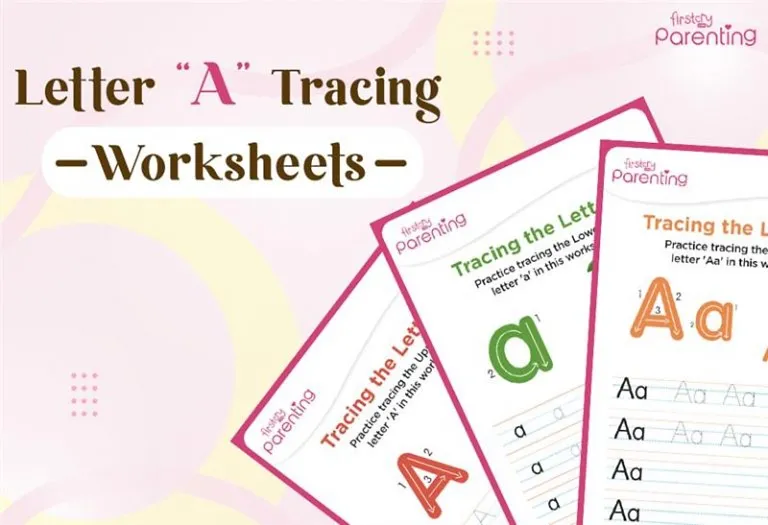Early Childhood Education – Why Is It Important for Your Child?
- What Exactly is Early Childhood Education?
- What Is the Purpose of Early Childhood Education?
- 13 Benefits of Early Childhood Education
- FAQs
It is widely recognized that the early years of a child’s life are critical for their cognitive and emotional development. Early childhood education plays a pivotal role in shaping their future success, as it provides a nurturing environment where children can explore, learn, and develop essential skills.
Parents, understanding the significance of these formative years, often seek out enriching experiences and educational opportunities for their children. They recognize that fostering a love for learning from an early age sets the stage for future academic achievement and personal growth. This proactive approach to early childhood education not only benefits individual children but also contributes to the overall well-being and prosperity of society.
What Exactly is Early Childhood Education?
Early childhood education is basically for children between the ages of three and five. It is more commonly referred to as preschool, pre-kindergarten, daycare, nursery school or simply early education. Despite the different names, they all have the same purpose – to prepare children for elementary school. Giving your children special attention before elementary school helps in giving them a head start for their future.
What Is the Purpose of Early Childhood Education?
Early childhood education (ECE) encompasses the formal and informal education experiences provided to children from birth through age eight. This critical stage of development lays the foundation for future learning and well-being. Through a variety of educational settings and approaches, ECE aims to support children’s holistic development and prepare them for success in school and life.
1. Promoting Holistic Development
Early childhood education focuses on nurturing children’s cognitive, social, emotional, and physical development. By providing stimulating environments and engaging activities, ECE programs support children in developing essential skills across multiple domains.
2. Encouraging Socialization
ECE environments offer opportunities for children to interact with peers and adults, fostering social skills such as cooperation, communication, and empathy. Through collaborative play and group activities, children learn to navigate social relationships and develop a sense of belonging.
3. Building Language and Communication Skills
Language-rich environments in ECE settings support children in developing vocabulary, grammar, and communication skills. Through storytelling, singing, and conversations, children expand their language abilities and learn to express themselves effectively.
4. Fostering Creativity and Imagination
Early childhood education encourages creativity and imagination through activities such as art, music, dramatic play, and storytelling. These experiences promote self-expression, problem-solving, and divergent thinking, laying the groundwork for future innovation and creativity.
5. Cultivating Critical Thinking and Problem-Solving Skills
ECE programs provide opportunities for children to explore, experiment, and solve problems independently. Through hands-on activities and open-ended materials, children develop critical thinking skills, learn to make decisions, and persevere in the face of challenges.
6. Supporting School Readiness
Early childhood education prepares children for the transition to formal schooling by introducing foundational academic concepts and routines. By cultivating pre-literacy, numeracy, and self-regulation skills, ECE programs help children succeed academically and socially in kindergarten and beyond.
7. Promoting Parental Involvement and Engagement
ECE programs recognize the importance of parental involvement in children’s learning and development. Through partnerships with families, educators collaborate to support children’s learning goals, share progress, and provide resources for continued growth at home.
8. Addressing Equity and Inclusion
Early childhood education plays a vital role in promoting equity and inclusion by providing access to high-quality educational opportunities for all children, regardless of background or ability. ECE programs strive to create inclusive environments where every child feels valued, respected, and supported.
9. Supporting Early Intervention and Special Needs Services
ECE programs play a crucial role in identifying and addressing developmental delays and special needs in young children. By providing early intervention services and specialized support, ECE professionals help children reach their full potential and access the resources they need to thrive.
10. Promoting Lifelong Learning and Well-being
Ultimately, the purpose of early childhood education is to instill a lifelong love for learning and promote well-being in children. By nurturing their curiosity, resilience, and sense of agency, ECE programs empower children to become lifelong learners who are equipped to navigate the complexities of the world with confidence and compassion.
13 Benefits of Early Childhood Education
Why is early childhood education important? The young mind is like a sponge. It has the potential to absorb a great deal of information, making it important for children to have guidance while learning. There are many aspects related to early childhood education, here we have listed out the many benefits:
1. Socialization
Humans are very social beings and the main concept of socialisation takes root in early childhood. In a safe environment away from family, children meet other people of their age, sowing the seeds of ‘socialization’ and ‘friendship’ in young minds. This helps to develop self-confidence in your children by eliminating their shy nature.
2. Cooperation
During this phase, children learn to share, cooperate, take turns and so on. These are all part of a secure social life. This is especially beneficial for an only child, who is not familiar with having to share things. In the safe environment provided, the child will learn to cooperate with guidance from professionals.
3. Holistic Development
As a human being, it is important to have a strong foundation in every aspect of the personality such as emotional, social, mental and physical. Teachers who handle young children are well-trained to identify the weaker aspects of a child and to encourage them to improve through practical sessions. Interaction among peers is extremely important in this context.
4. Enthusiasm for Lifelong Learning
Children will develop a hunger for learning if they are taught through fun and exciting activities. This eagerness and enthusiasm for learning will remain with them their entire lives!
5. Value of Education
The new environment provided in preschool gives children an entirely different perspective on the requirements of education. Grasping knowledge and applying it to their lives demonstrates the value of education.
6. Respect
The environment in preschool helps children learn to become civil towards one another and they start to understand that the concept of respect is not just limited to people and belongings, but also to their environment.
7. Teamwork
A person’s teamwork capability is based on their respect for others opinions, listening skills and mentality towards equality. All these qualities should be taught at a young age. Many preschool activities are focused on teamwork and help children improve their attitude towards working as a team.

8. Resilience
Our society is ever-changing and it is important to develop resilience as early as possible. The challenging scenarios provided by the professional guides help children to learn through their own experiences. The bruises and bumps from their challenges lay the foundation for better coping strategies for their future challenges.
9. Concentration
Involvement in preschool tasks and activities demands higher levels of concentration from a child. The repetitive occurrence of the activities helps them to improve their concentration skills.
10. Patience
In the life of an adult, patience is often tested and children should be trained to handle such situations for the future. Experiences such as sharing the attention of the teacher, waiting for their turn etc. will help children develop patience.
11. Confidence and Self-esteem
A sense of well-being is important for a person to explore their talents. The positive interactions with peers and teachers encourage a positive view of themselves. This is an important impact of early childhood education.
12. Brain Development
Professionally crafted activities in preschool enhance the development of the brain. Various activities involving analysing and logical reasoning help them to develop their skills.
13. Exposure to Diversity
There is so much diversity in the modern world and children need to be taught to appreciate and accept the differences in society.
Each new word, experience and person can mould a young child into the person they will grow up to be. This is because it is possible to have a greater impression on a person during their early childhood days. Most parents understand this and give early childhood education the importance it is due.
FAQs
1. What are the benefits of enrolling a child in an early childhood education program?
Enrolling a child in an early childhood education program offers numerous benefits, including improved cognitive abilities, enhanced social skills, increased school readiness, and a greater likelihood of academic achievement later in life.
2. At what age should a child start early childhood education?
Early childhood education can begin as early as infancy, with programs tailored to meet the developmental needs of children at each stage of their early years. Many parents choose to enroll their children in preschool programs around the age of three or four, but the specific age may vary depending on individual circumstances and preferences.
3. How does early childhood education support working parents?
Early childhood education provides working parents with a safe, nurturing environment for their children while they are at work. Quality ECE programs offer structured learning experiences, nutritious meals, and opportunities for socialization, giving parents peace of mind knowing their children are well cared for during the day.
The above clearly explains early childhood education’s meaning. Recent studies reveal the importance of early childhood education as it can influence the mental, emotional and physical development of a child. Hence for increasing the quality of the education of your child, ensure early childhood education. So always make sure that they start early so it doesn’t become a problem in the future.
References/Resources:
1. Why early childhood care and education matters; UNESCO; https://www.unesco.org/en/articles/why-early-childhood-care-and-education-matters
2. Fung. L, Yong. F; Benefits of early childhood education; Research Gate; https://www.researchgate.net/publication/358137101_Benefits_of_early_childhood_education; January 2022
3. Children’s Learning and Development Benefits from High-Quality Early Care and Education: A Summary of the Evidence; Office of Planning, Research, & Evaluation; https://www.acf.hhs.gov/opre/report/childrens-learning-and-development-benefits-high-quality-early-care-and-education
4. Davies. C, Kong. S, Gonzalez-Gomez. N; Sustained benefits of early childhood education and care (ECEC) for young children’s development during COVID-19 (Journal of Early Childhood Research); Sage Journals; https://journals.sagepub.com/doi/10.1177/1476718X231213488; November 2023
5. Benefits Of Early Childhood Education & Effects On Future Success; The World Organization For Humanitarian Movement; https://wohum.org/the-benefits-of-early-childhood-education-and-its-effect-on-future-success/
6. Child Development and Early Learning (Transforming the Workforce for Children Birth Through Age 8: A Unifying Foundation); National Library of Medicine; https://www.ncbi.nlm.nih.gov/books/NBK310550/
7. Bakken. L, Brown. N, Downing. B; Early Childhood Education: The Long-Term Benefits (Journal of Research in Childhood Education); Taylor & Francis Online; https://www.tandfonline.com/doi/full/10.1080/02568543.2016.1273285; February 2017
Also Read:
Role of Environment in Child Development?
Importance of Play in Your Child’s Development
Importance of Preschool Education for Your Kid
Reggio Emilia Approach to Early Childhood Education
Was This Article Helpful?
Parenting is a huge responsibility, for you as a caregiver, but also for us as a parenting content platform. We understand that and take our responsibility of creating credible content seriously. FirstCry Parenting articles are written and published only after extensive research using factually sound references to deliver quality content that is accurate, validated by experts, and completely reliable. To understand how we go about creating content that is credible, read our editorial policy here.














.svg)
















